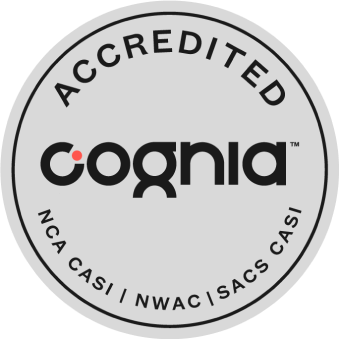College is a huge milestone in your child’s life. In addition to being instrumental for shaping their future, it also presents a significant financial burden. It’s important that your child knows what to expect when it comes to applying to, attending, and paying for college.
But how early is too early to start talking about college? At BASIS Charter Schools, college success is infused into every aspect of our K–12 academic program. From day one, we spark a love of learning and inspire our students to discover new interests. Our accelerated curriculum is thoughtfully designed to help students build essential skills and prepare for college-level coursework.
Believe it or not, elementary school can be a great time to start discussing the importance of a college education. It’s all about having thoughtful, age-appropriate conversations that get your student excited about the possibility of college.
Get the college conversation started at any age with these simple talking points.
Grades K–4: Introducing college
For young children, keep the concept of college simple. Focus on explaining the basics of what college is and teaching your child about the importance of hard work.
Use simple, kid-friendly explanations
Explain that college is similar to their school… just bigger and more specialized. In simple terms, college is a school for older students where they can learn more about the subjects they love. Relating college to your child’s own classroom experiences will make it seem less abstract.
Share stories
Spark college conversations by showing your child pictures of you when you were in college, or by sharing stories about your favorite classes or professors. Talk about what you learned while attending college and how it made a difference in your life. (Note: If you didn’t go to college yourself, you can share positive experiences from relatives!)
Talk about different jobs
Point out different occupations you see in your day-to-day life and ask your child what they might like to do when they get older. Explain that each job requires a different set of skills. Some jobs require special training in college, and some careers (like doctors) require more time in college than others.
Introduce saving and budgeting
While it may not be the right time to introduce concepts like tuition and loans, you can lay the foundation for financial literacy by teaching your child about saving and budgeting. Consider giving them an allowance for chores, or explaining the advantages of saving their birthday money instead of spending it right away.
Grades 5–8: Digging deeper
As your child enters middle school, you’ll want to start talking about college in more depth—introducing topics like financial aid, resume building, and different fields of study.
Explore potential career paths
Take stock of your student’s interests and hobbies and discuss what they might want to study in college. Even though this is likely to change as your student gets older, early conversations will get them thinking about potential majors.
Dive into college admissions
Discuss what it takes to get into college and explain that some colleges are more selective than others. Grades, test scores, and extracurriculars can all be important deciding factors for college admissions teams. By making the connection between school performance and college acceptance, your student may be more motivated to do their best as they prepare for high school.
Talk about the cost of college
Talk to your child about the tuition cost of college and how scholarships and loans can be used to offset this cost. Explain that it’s important to be mindful when taking out student loans, since they need to be paid back after you graduate. If your family has any college savings accounts (like a 529 plan), take some time to talk about how these savings could affect your student’s choice of college.
Remind your child that they have options
It can be easy for kids to feel overwhelmed when college conversations become more serious—especially if they feel like they are being pushed to attend a certain college or follow a specific career path. Remind your child that they still have plenty of time to figure out their college plans, and that there are no right or wrong choices.
Grades 9–12: Getting ready for college applications
College planning becomes more concrete once your student starts high school. As a parent, your job is to support your student and provide guidance as they get ready to start applying to colleges in their senior year.
Narrow down your options
Talk to your student about what they are looking for in a college. Some things to consider include:
- Intended major
- Proximity to home
- The size of the campus
- School culture
Work with your student to make a list of potential colleges that align with their wants and needs. Your student’s college counselor can help with this, too!
Align coursework with college goals
Encourage your student to select courses and extracurricular activities that will set them up for success in college. Advanced placement (AP) courses are an excellent way for students to earn college credits while still in high school. Additionally, make sure your child has a plan in place for taking the SAT and/or ACT.
Go on college visits
Visit some of the colleges and universities that pique your student’s interest. Going on a campus tour is a great way to get a feel for the school’s atmosphere and community. After your tour ends, ask your student what they liked or didn’t like about the school. Make a list of pros and cons, and compare this list against other schools you’ve visited together.
Be realistic
Now’s the time to have an honest conversation about how much you are willing and able to contribute to your student’s college expenses. Remind your student to look beyond tuition when considering colleges—taking things like housing, textbooks, transportation, and meal plans into account.
Tips for college conversations at all ages
At any age, having frequent, open conversations about college is the key to sparking your child’s curiosity. Remember, college planning doesn’t have to be scary! By taking the pressure off of these conversations, you can help your student approach college with confidence and a sense of purpose.
Throughout the college planning process, make sure your student knows you will support them no matter what college they attend or what career they pursue. The idea is to guide your child toward thoughtful choices without imposing your exact vision of their future.
Prepare for college with BASIS Charter Schools
BASIS Charter Schools are dedicated to preparing students for college success. We offer an advanced college prep curriculum, a daily college counseling course for seniors, and a unique Senior Project program that gives students valuable real-world experience in their field of study. Visit our College Readiness page to learn how BASIS prepares students to attend top colleges.
Our network of high-performing, tuition-free public charter schools serves students in Arizona, Louisiana, Texas, and Washington, D.C. Find a school near you to set your child on a clear path to college success.






